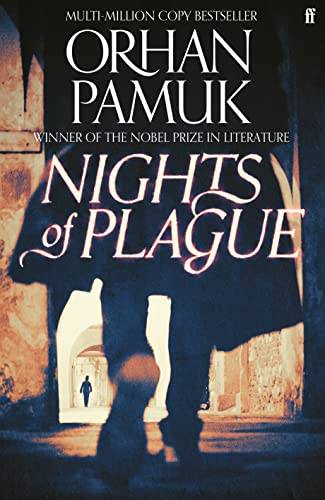
Nights of Plague by Orhan Pamuk n(Nobel Prize Laureate)
Check my rate
| Main centres: | 1-3 business days |
| Regional areas: | 3-4 business days |
| Remote areas: | 3-5 business days |

| Main centres: | 1-3 business days |
| Regional areas: | 3-4 business days |
| Remote areas: | 3-5 business days |
Published by Faber & Faber, 2022 softcover, 681 pages, condition: basically as new.
From the the winner of the Nobel Prize in Literature: Part detective story, part historical epic--a bold and brilliant novel that imagines a plague ravaging a fictional island in the Ottoman Empire.
It is April 1900, in the Levant, on the imaginary island of Mingheria--the twenty-ninth state of the Ottoman Empire--located in the eastern Mediterranean between Crete and Cyprus. Half the population is Muslim, the other half are Orthodox Greeks, and tension is high between the two. When a plague arrives--brought either by Muslim pilgrims returning from the Mecca or by merchant vessels coming from Alexandria--the island revolts.
To stop the epidemic, the Ottoman sultan Abdul Hamid II sends his most accomplished quarantine expert to the island--an Orthodox Christian. Some of the Muslims, including followers of a popular religious sect and its leader Sheikh Hamdullah, refuse to take precautions or respect the quarantine. And then a murder occurs.
As the plague continues its rapid spread, the Sultan sends a second doctor to the island, this time a Muslim, and strict quarantine measures are declared. But the incompetence of the island's governor and local administration and the people's refusal to respect the bans doom the quarantine to failure, and the death count continues to rise. Faced with the danger that the plague might spread to the West and to Istanbul, the Sultan bows to international pressure and allows foreign and Ottoman warships to blockade the island. Now the people of Mingheria are on their own, and they must find a way to defeat the plague themselves. Orhan Pamuk is a Turkish novelist, screenwriter, academic, and recipient of the 2006 Nobel Prize in Literature. One of Turkey's most prominent novelists, he has sold over 13 million books in 63 languages, making him the country's best-selling writer.
Pamuk's novels include Silent House, The White Castle, The Black Book, The New Life, My Name Is Red and Snow. He is the Robert Yik-Fong Tam Professor in the Humanities at Columbia University, where he teaches writing and comparative literature. He was elected to the American Philosophical Society in 2018.
Of partial Circassian descent and born in Istanbul, Pamuk is the first Turkish Nobel laureate. He is also the recipient of numerous other literary awards. My Name Is Red won the 2002 Prix du Meilleur Livre Étranger, 2002 Premio Grinzane Cavour and 2003 International Dublin Literary Award.
The European Writers' Parliament came about as a result of a joint proposal by Pamuk and . Pamuk's willingness to write books about contentious historical and political events put him at risk of censure in his homeland. In 2005, a lawyer sued him over a statement acknowledging the Armenian genocide in the Ottoman Empire. Pamuk said his intention had been to highlight issues of freedom of speech in Turkey. The court initially declined to hear the case, but in 2011 Pamuk was ordered to pay 6,000 liras in compensation for having insulted the plaintiffs' honor.